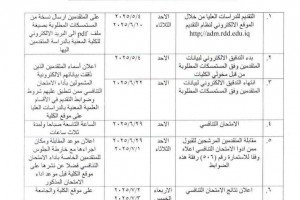
The researcher Mojtaba Muhammad Mahdi's thesis aimed to study the effect of spraying with four levels of salicylic acid and four levels of tryptophan on the growth, yield, and quality of bread wheat.
The experiment was designed to investigate the effect of spraying with four levels of salicylic acid (0, 60, 120, 180 mg L-1) and four levels of tryptophan (0, 60, 120, 180 mg L-1) on the growth, yield, and quality of bread wheat (variety Research - 22).
The spraying is carried out in three stages of plant growth (branching, elongation, and booting) in each stage, the concentration is added completely to each spray.
The experiment was designed using a randomized complete block design with three replicates according to the factorial experiment.
The results of the experiment reached an increase in the yield of grains and grain protein when spraying salicylic acid (120 mg. Liter-1) and its effect was greater than that of tryptophan, both of salicylic acid and tryptophan achieved significant superiority compared with control treatment (without spraying), and this indicates that salicylic acid had a greater effect in the yield. While tryptophan acid played a major role in improving the specific characteristics. Also, spraying with salicylic acid and tryptophan at a concentration of 120 mg L -1 improves the quality of wheat grains and increases their baking capacity by increasing their protein and gluten content.
In order to increase productivity and boost the quality of bread wheat, the study recommended the use of combination spraying (S120 + T120 mg liter-1) while growing wheat.







